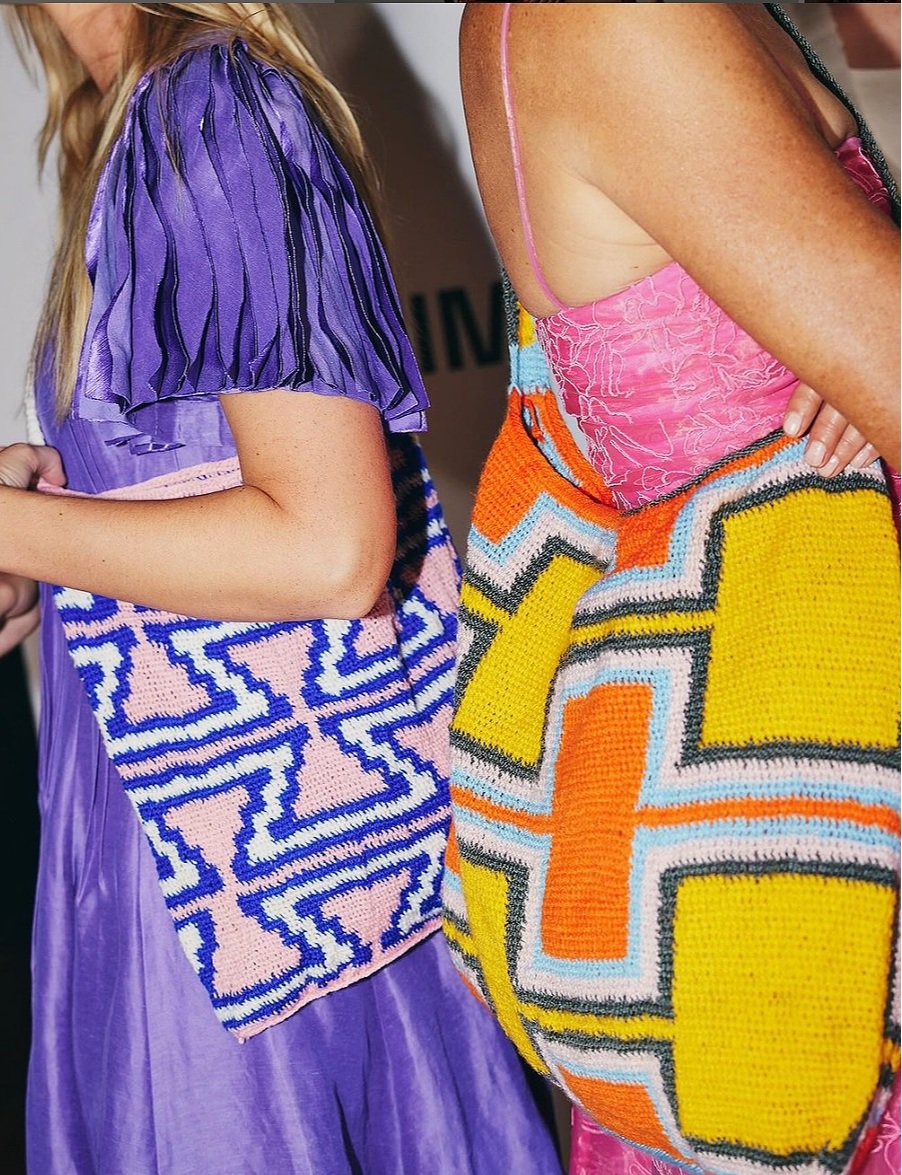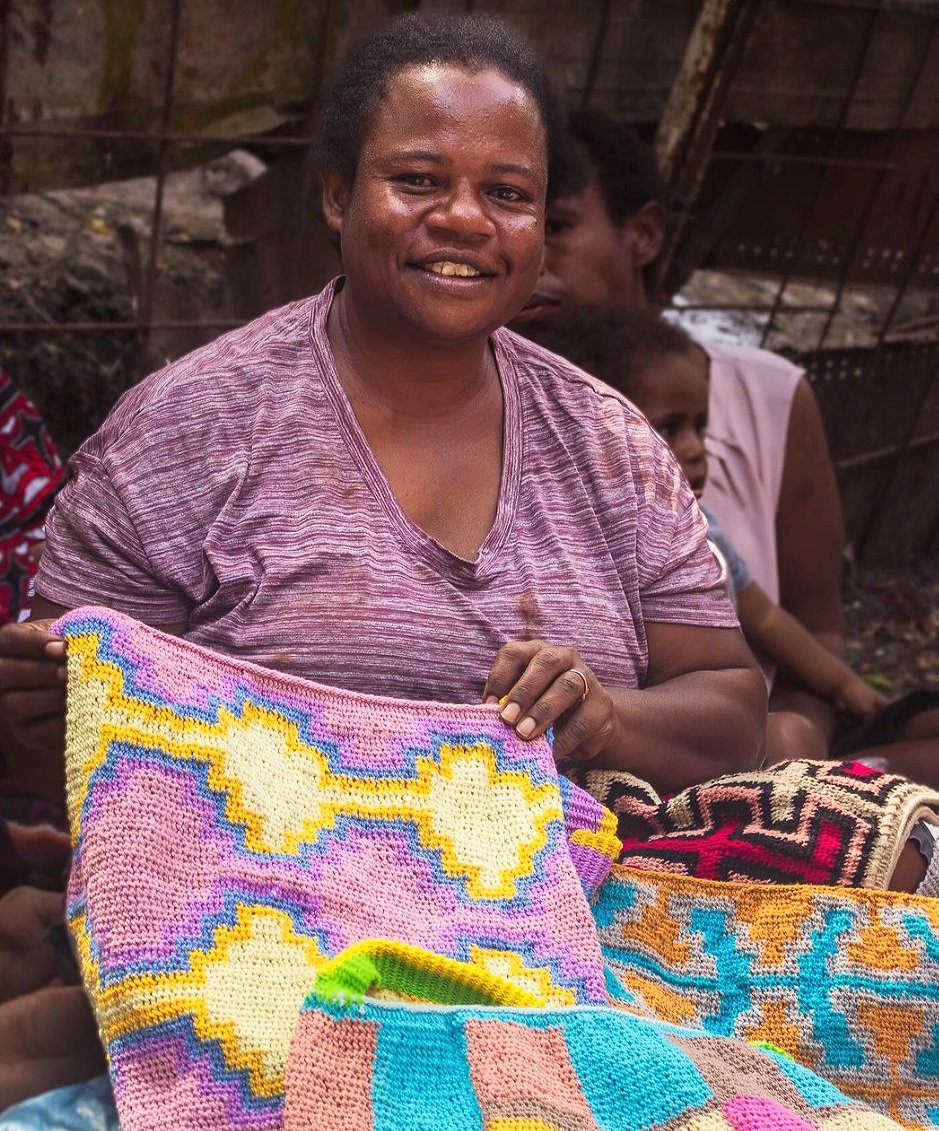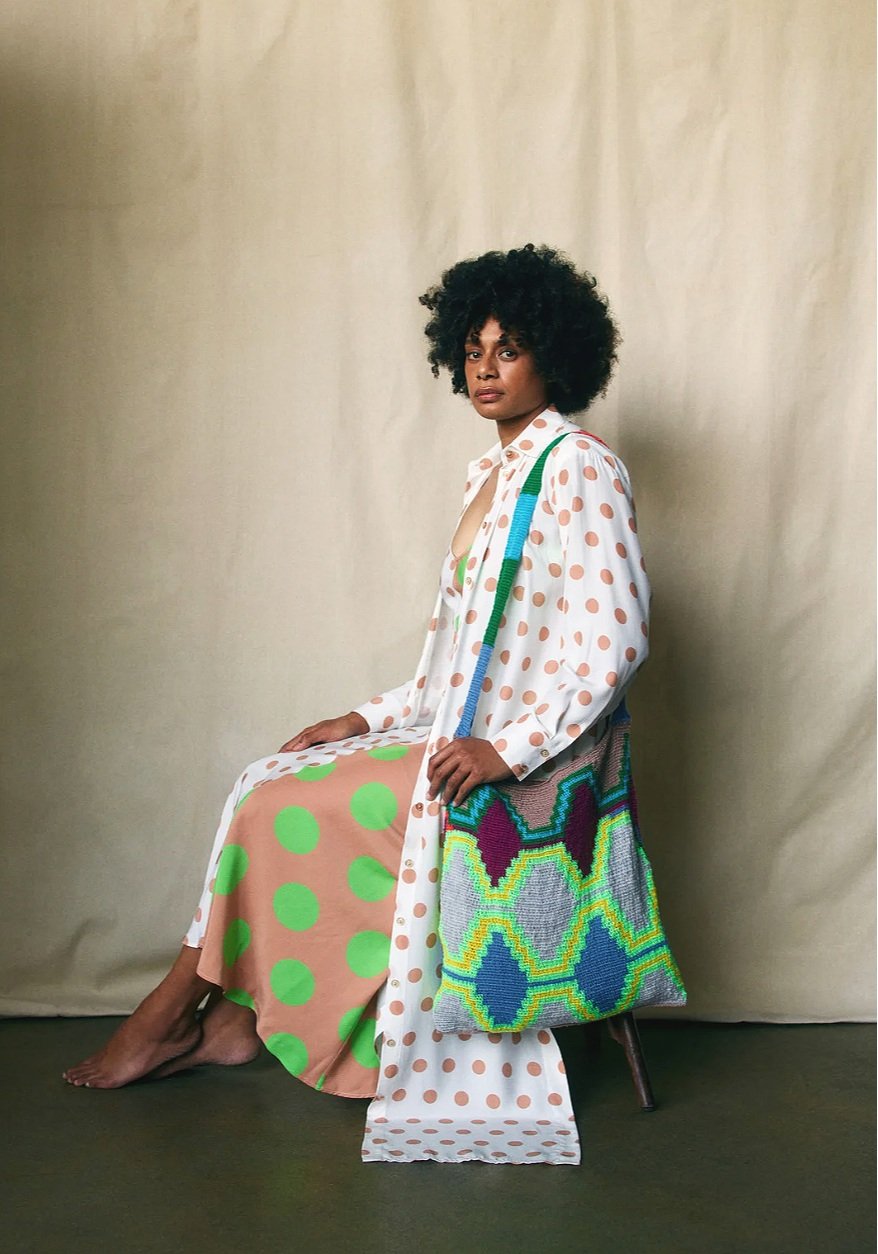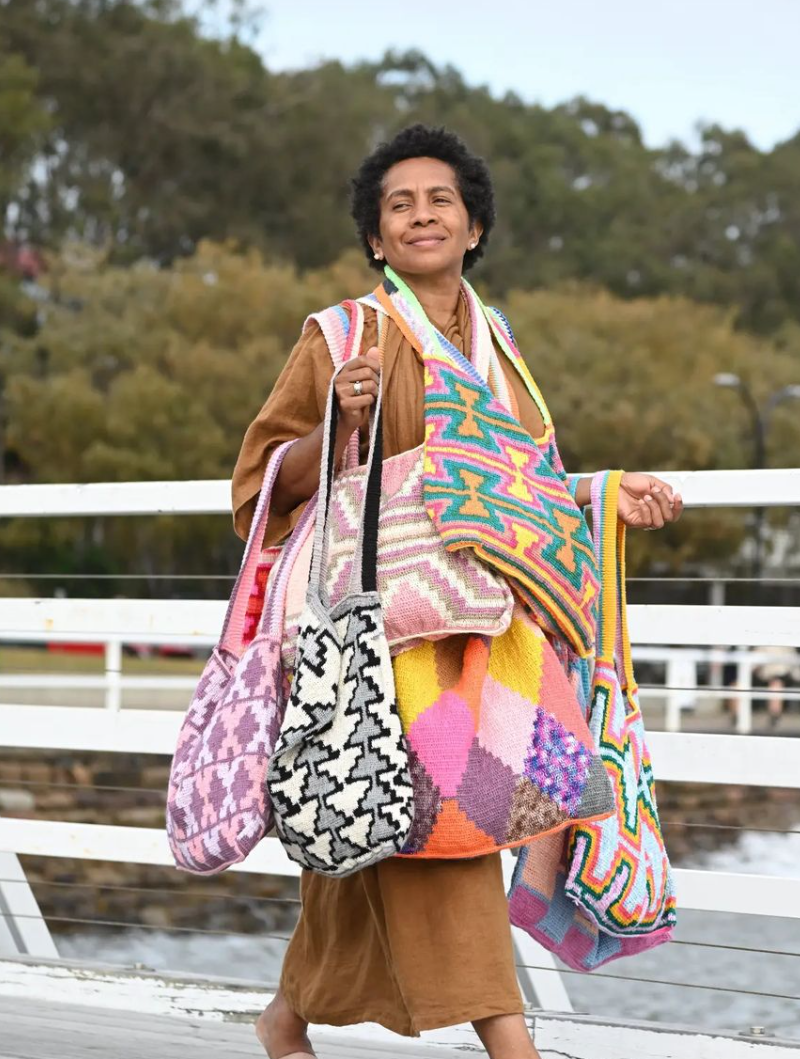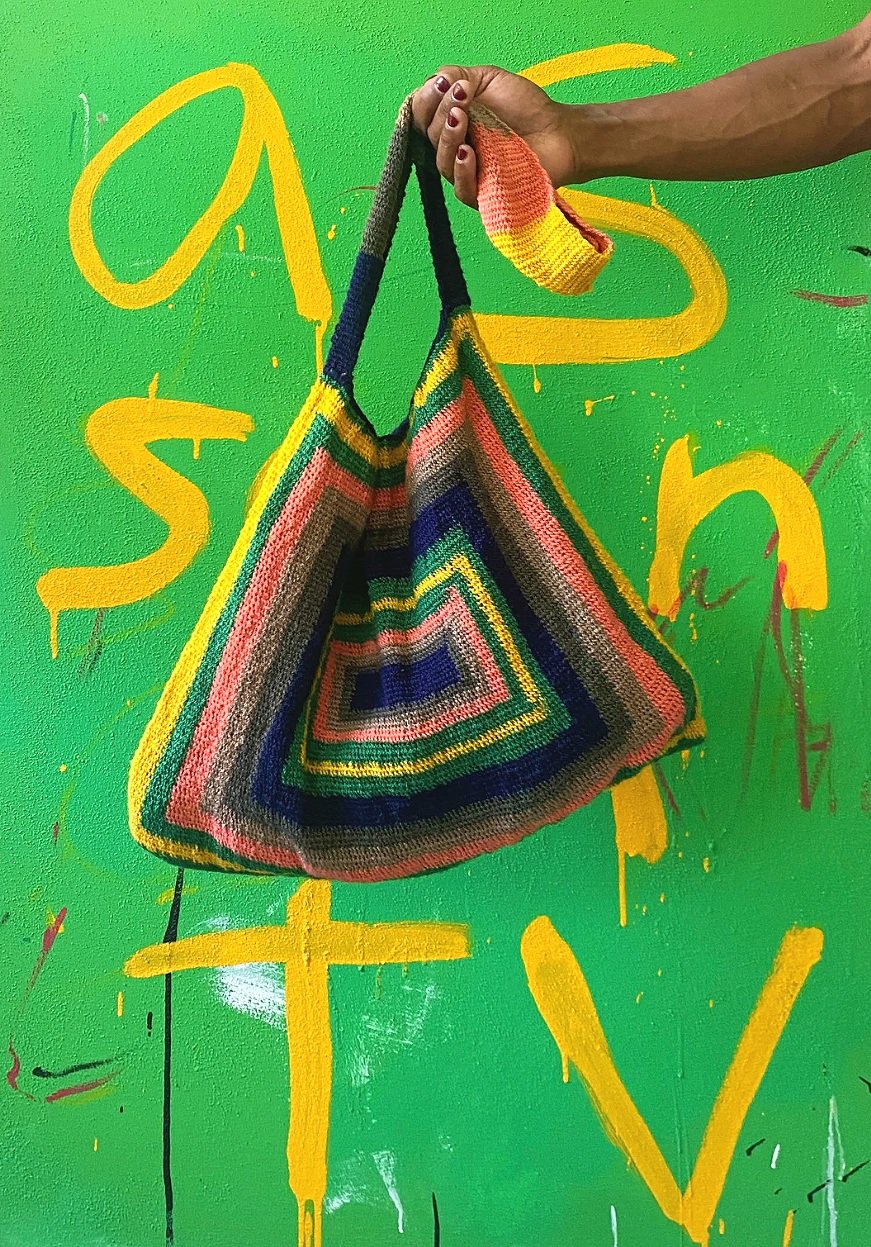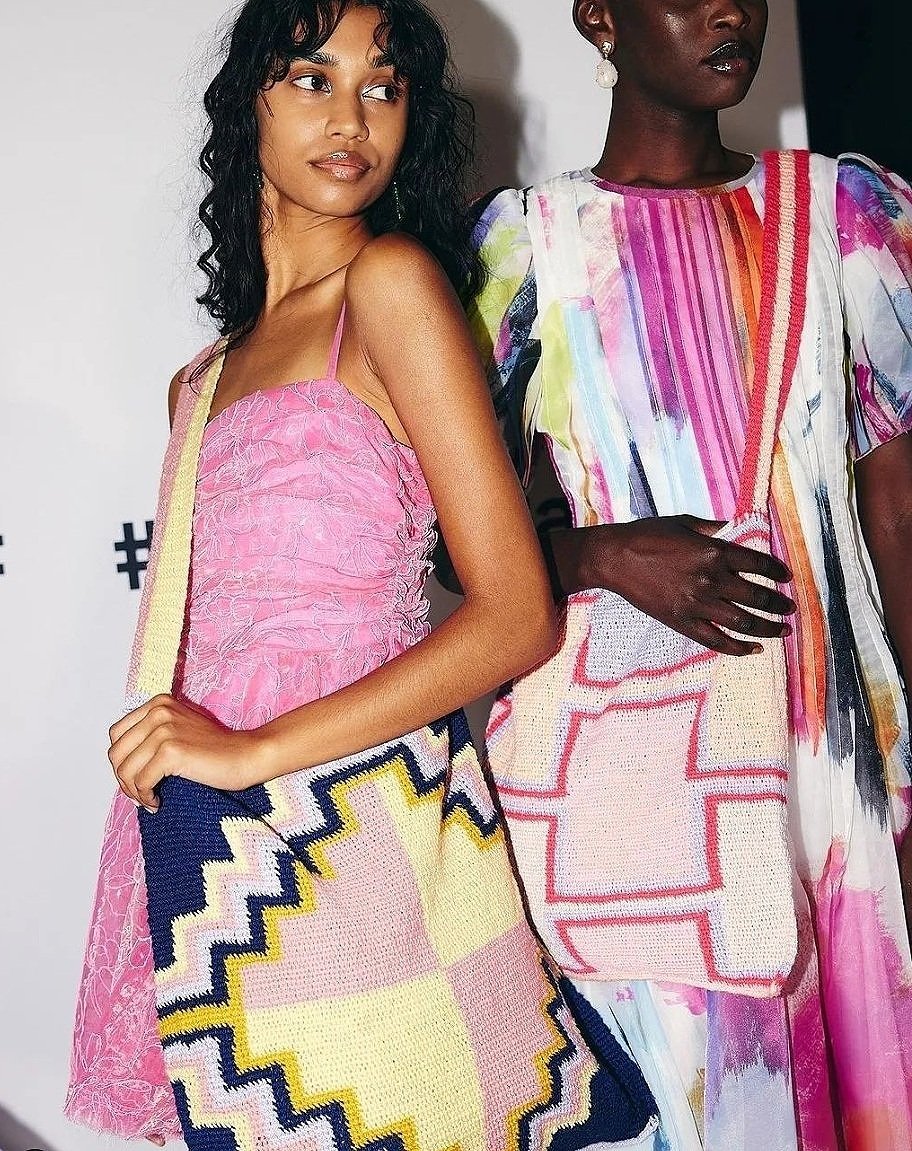Project Two Mile Colourful Bilum Bag-Alupu
Project Two Mile Colourful Bilum Bag-Alupu
A collection of beautiful bilum bags as unique as the women who made them. Mindfully hand-crafted by hand in the squatter settlements of Port Moresby, Papua New Guinea.
Product Details:
This bilum is hand-woven from acrylic and wool yarn using a traditional weaving technique.
The yarn is twisted by placing it on the weaver's thigh and is rolled in a backward and forward motion using hands.
The twisted yarns are then hand-woven into bilum bags. This process takes a few weeks.
Bilums are very versatile and expandable.
Each bilum has a story and the patterns are a visual language and authentic to the women who weave them.
Shoulder Strap: 84cm
Height: 44cm
Width: 47cm
The bilums contribute to providing the weavers and their families with a stable income via the Project Two Mile initiative.
Care: To clean bag, cold machine wash and line dry.
A BEACON OF HOPE
Named after 2 Mile, the most notorious squatter settlement in Port Moresby, Papua New Guinea (PNG). Project Two Mile is an initiative with the singular purpose of economically and purposefully supporting the lives of marginalised women by providing a global platform for their artwork and crafts. Project Two Mile supports female weavers with the opportunity to find economic independence through their traditional craft. Aiming to not only uplift the women and their families' lives but to keep the ancient technique of Bilum weaving alive.
Starting in 2020 with small steps but big dreams, PNG native Maggie T Kera began selling Bilum bags made by a handful of weavers from the 2 Mile settlement online. She works tirelessly, liaising between clients, customers, and weavers, to ensure that the highest level of craftsmanship is maintained. Maggie now supports over 100 weavers, paying them a premium for their work so that her dream of a sustainable future for all involved in the project can be achieved.
What Is A Bilum?
Bilum is perhaps the most significant word in Tok Pisin, one of three official languages of Papua New Guinea (PNG) meaning ‘womb’. Bilum is the place from which all life begins. Bilum bags are an integral part of PNG culture and a crucial source of income for many women, often providing them with their only opportunity to enter the formal economy.
A Bilum bag is hand-woven using weaving techniques that has been passed down through many generations. A skill primarily practiced by women, Bilum weaving traditionally used natural fibers from barks of plants and shrubs however more recently also being made from acrylic and wool yarn. Culturally Bilum bags are used as gifts between mothers, sons, daughters, wives, and husbands. Gifted to extended family, friends, loved ones, and new acquaintances, they are often used to signify the establishment of a new relationship, as mementos from hometowns, or as a symbol of wealth and positions in society. Used daily the Bilum bags become a functional item carrying produce from the market, transporting babies, and for ceremonial celebrations. Bilum bags form part of the rich cultural tapestry of PNG.
A woman's personality, creativity, and self-expression can be seen in the use of traditional patterns, new designs, and expressive colour combinations, Bilum weaving is a proud example of PNG’s creativity that has emerged from different traditions around the country that strike a harmonious balance between a global aesthetics and local culture. A powerful tool of empowerment for PNG women, Bilum weaving provides women with an important source of income. The World Intellectual Property Organization reports that 80% of Bilum weavers are illiterate with little education, many are single mothers and have limited access to healthcare, living in inadequate conditions. The sale of Bilum weaving can have a profound effect on the lives of weavers and their families, for every 100 Bilum’s sold, 50 women are able to send their children to school and support their family for a year. The Bilum bag has the power to transform the lives of weavers through a creative and cultural practice that provides access to life-changing income.










